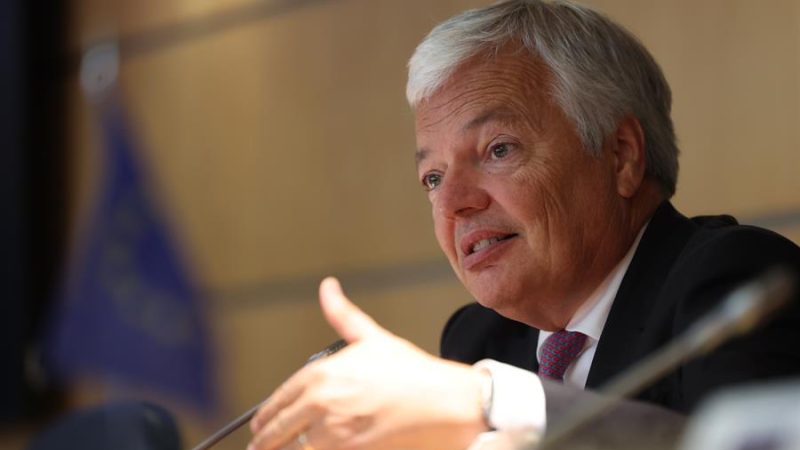Madrid – The European Justice Commissioner, Didier Reynders, specified this Wednesday that the reform in the model of election of the members of the General Council of the Judiciary (CGPJ) is “a recommendation” which “urges” all member states, not an “obligation” or a “requirement”.
Reynders gave a positive assessment of the renewal a few months ago of the CGPJ after meeting in Madrid with the Minister of Presidency, Justice, and Relations with the Court, Félix Bolaños; the leader of the PP, Alberto Núñez Feijóo, and the new president of the CGPJ, Isabel Perelló.
In a press conference after these meetings, the European Justice Commissioner said he was “very pleased” with the involvement of both actors – PP and PSOE – in the renewal of the CGPJ, whose negotiations he himself mediated, after more than five years of blockage.
He appreciated that the renewal was carried out “independently” and that, “for the first time”, a woman is in charge of the presidency of the Council and the Supreme Court.
And he hoped that next February, when six months have passed since the agreement, the CGPJ will submit to the Courts its proposal to modify the system of election of judicial members, as the President of the Council has committed to.
“We are going through a transition, the CGPJ has been renewed, and we are awaiting future reforms. I fully trust the president and her desire,” he indicated.
However, when asked whether this reform is mandatory or optional, Reynders specified that it is a “recommendation” from the Commission which “urges” all member states to a series of improvements.
Nevertheless, the commissioner indicated that the European “standard” is that a “majority of Council members” are elected by their peers, and he hopes to see the proposals of the new CGPJ to see “how we can approach these standards” and for better participation of judges and magistrates.
“We will see how far we can go,” he indicated.
The European Commission tries to avoid “a regression” in the states, explained the commissioner, who also trusted that the process of appointment of the more than one hundred vacancies in the judicial leadership that must be carried out by the CGPJ is based on criteria of “merit and capacity”.
Reynders said he is aware of the existing polarization in various states, including Spain, but stressed the importance of “proving that in some important matters, dialogue is possible” and that in the case of the judiciary and its independence, “it is important to reach an agreement between the major political forces”. (18th of September)
 go to the original language article
go to the original language article
